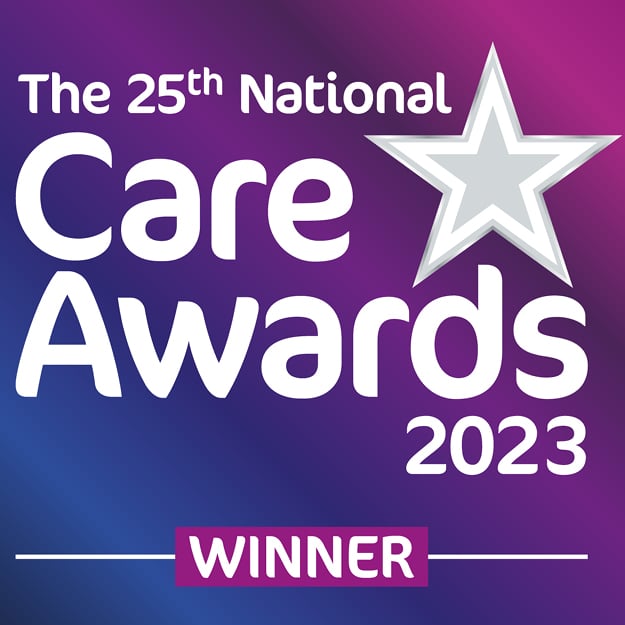Empowering Domiciliary Care Providers with Compliance and Care Tools
Delivering exceptional care in people’s homes requires a unique set of tools and resources. QCS simplifies compliance management, helping you stay aligned with CQC standards while focusing on providing high-quality care. From policies and audits to dementia care, QCS gives you everything you need to run a successful domiciliary care service.
Start Free TrialHow QCS Helps Domiciliary Care Providers Thrive
CQC Compliance Made Simple: Stay compliant with CQC regulations effortlessly, with up-to-date policies that reflect the latest changes.
Improve Care Quality: Use audit and governance tools to track and improve the quality of care delivered in homes.
Tailored Policies: Access policies and procedures specifically designed for domiciliary care, ensuring they meet your service’s unique needs.
24/7 Accessibility: Manage compliance tasks from anywhere, anytime, with the QCS mobile app.
Dementia Care Expertise: Provide compassionate, high-quality dementia care with resources designed to meet CQC standards.
Engage Your Teams: Equip staff with easy-to-understand resources, ensuring they are informed and confident in delivering care.
QCS Tools for Domiciliary Care Providers
Simplify the CQC registration process for new domiciliary care providers with step-by-step guidance and essential tools.
Standalone product/package Learn MoreEnsure compliance with CQC standards, with automatically updated policies tailored to domiciliary care.
Included in QCS Essentials, QCS Governance & QCS Empower Learn MoreStreamline audits and governance processes, making it easy to evidence care quality and continuous improvement in domiciliary care.
Included in QCS Governance & QCS Empower Learn MoreProvide specialised dementia care with resources designed for domiciliary care, ensuring compassionate and compliant care.
Exclusive to QCS Empower Learn MoreChoose the Right Package for Your Domiciliary Care Service
£333*/month
or
£3,995*/year
- QCS Compliance Centre
- Always up-to-date policies aligned to your sector and regulator
- Automated policy personalisation to your location
- QCS Risk Assessments
- QCS Learning Centre
- QCS App
- QCS Communications+
- QCS Audit Centre Prepare for inspections with detailed online audits.

"*" indicates required fields
Domiciliary Care Providers Share How QCS Improved Their Compliance Management
At the Care Show London 2024, domiciliary care providers shared their experiences of using QCS to streamline compliance and improve care quality. Watch the video to see how QCS’s tailored solutions help domiciliary care agencies stay compliant with CQC standards, simplify audits, and focus more on delivering care in the community.
Proudly Recognised for Excellence
FAQs for Domiciliary Care Providers in England
-
Registering with the CQC involves submitting a detailed application, which includes essential documentation such as policies, risk assessments, and appointing a registered manager. The process can take several months depending on your readiness. Using tools like QCS Start can simplify this process by providing templates and policies tailored to CQC standards, helping you submit a compliant application smoothly.
-
A Registered Manager is responsible for overseeing the day-to-day operations of the service and ensuring compliance with CQC regulations. They must demonstrate leadership, maintain high standards of care, and ensure staff are trained and competent. The role is vital in ensuring that care services are delivered effectively and meet regulatory requirements.
-
The frequency of inspections depends on your service’s rating. Services rated as “Good” or “Outstanding” may be inspected less frequently (approximately every two years), while those rated “Requires Improvement” or “Inadequate” will be inspected more often. To stay inspection-ready, tools like QCS Compliance Centre help you manage ongoing compliance and ensure you’re meeting CQC standards at all times.
How QCS Supports Domiciliary Care in 3 Steps
Here’s a quick recap of how QCS helps domiciliary care providers manage compliance and deliver quality care:
- Stay Compliant: Automatically updated policies aligned with CQC standards ensure your service remains compliant.
- Enhance Care Quality: Track and evidence care quality with audit and governance tools.
- Support Your Staff: Provide your team with easy-to-access resources, policies, and training designed for domiciliary care.
Start Free Trial








